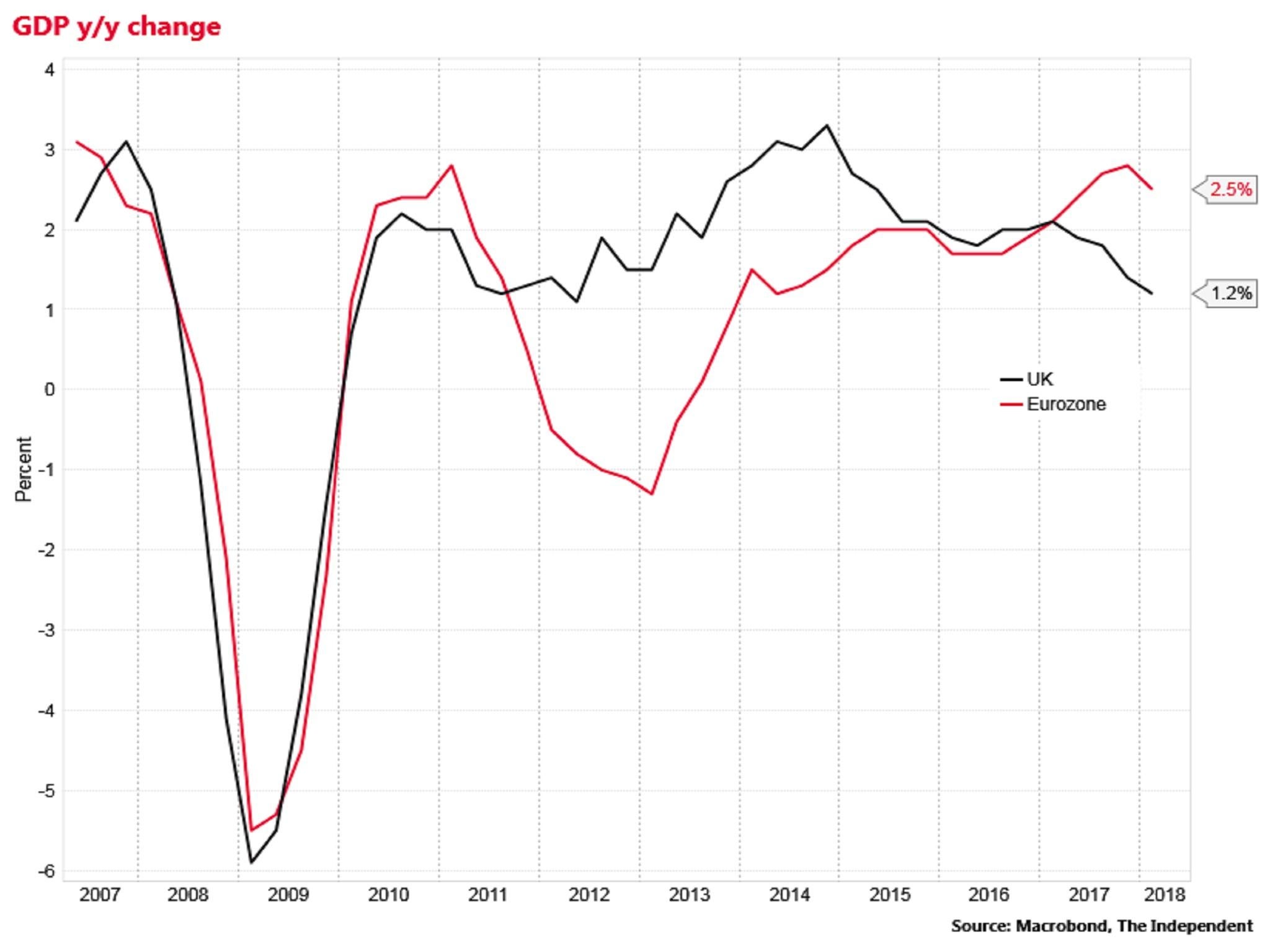The eurozone’s economy slowed in the first quarter of 2018, but still outstripped the UK, according to the latest official data.
Eurostat estimated on Wednesday that quarterly growth in the 19 member single currency area slipped to 0.4 per cent in the three months to March, down from the 0.7 per cent expansion rate in the final quarter of last year and the weakest expansion rate since the middle of 2016.
However, the quarterly growth rate in the currency bloc was still much better than the 0.1 per cent growth rate seen in Britain over the same period, as reported by the Office for National Statistics (ONS) last week.
On a year-on-year basis, the eurozone’s GDP growth slowed from a rate of 2.8 per cent to 2.5 per cent.
But the latest ONS data shows the UK’s economy growing at an annual rate of just 1.2 per cent, the weakest since 2012.
Continental drift
Analysts have attributed the UK slowdown to Brexit uncertainty and the squeeze on household incomes from the spike in inflation last year.
But there is no consensus on the causes of the eurozone’s slowdown, after last year’s growth boom, with some blaming fears of a trade war with the US, after Donald Trump’s recent threats, and others adverse weather.
“The moderation in recent months was worsened by cold weather, a historically severe flu season in Germany, extensive strikes in France and other temporary factors,” said Moritz Degler of Oxford Economics.
“Moving into Q2, some of these should be reversed.”
Stephen Brown of Capital Economics said there was “no denying” that underlying eurozone growth had slowed, which he attributed to the fading of the 2017 boost from buoyant trade.
But he pointed to reasonable consumer confidence surveys.
“We suspect that consumption growth will pick up in Q2 and help to push quarterly GDP growth back to around 0.5 per cent or 0.6 per cent,” he said.
GDP estimates from Germany, the eurozone’s largest economy, have not yet been released.
But France’s statistics agency has reported a Q1 growth decline from 0.7 per cent to 0.3 per cent. And growth in Spain was estimated to be unchanged at 0.7 per cent.
Subscribe to Independent Premium to bookmark this article
Want to bookmark your favourite articles and stories to read or reference later? Start your Independent Premium subscription today.


Join our commenting forum
Join thought-provoking conversations, follow other Independent readers and see their replies